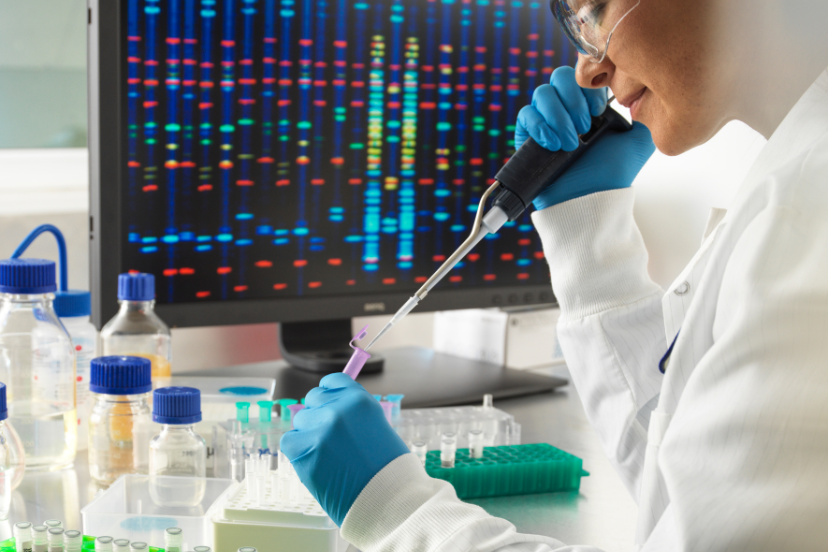Genetic Testing for Celiac: Unraveling the DNA of Gluten Sensitivity
Introduction: Decoding the Puzzle of Celiac Disease
Are you or a loved one grappling with the mysteries of celiac disease? Genetic testing for celiac might just be the compass you need in this uncharted territory. In this comprehensive guide, we’ll delve into the nitty-gritty of genetic testing for celiac, exploring its significance, the process, and what it means for your gluten-related health concerns.
What is Genetic Testing for Celiac?
Genetic testing for celiac? Let’s break it down. Genetic Testing? It’s like taking a peek at your DNA playbook. Celiac? That’s the arch-nemesis of gluten lovers. Put them together, and you have a tool to unveil your risk of developing celiac disease.
Understanding the Basics of Celiac Disease
Before we plunge into genetic testing, let’s briefly demystify celiac disease. What’s the deal with it?
Celiac disease is an autoimmune disorder. It’s like your immune system has a vendetta against gluten, a protein found in wheat, barley, and rye. When gluten enters your system, it unleashes havoc, damaging your small intestine and causing an array of uncomfortable symptoms.
How Does Genetic Testing Work?
Now, let’s turn the spotlight on genetic testing for celiac. How does it pull the curtains back on this gluten drama?
- DNA Unraveled: Genetic testing scrutinizes your DNA, looking for specific markers associated with celiac disease. Think of it as a genetic detective hunting for clues.
- Who Should Consider Genetic Testing for Celiac?
- a. Family Matters: If you have a family member with celiac disease, your genes might be singing the same tune. Genetic testing helps identify familial connections.
- b. The Unexplained Symptoms: If you’ve been experiencing mysterious symptoms like abdominal pain, fatigue, or malnutrition, genetic testing can provide clarity.
- c. Peace of Mind: Some opt for genetic testing out of sheer curiosity or a desire for peace of mind, especially if they’ve been exposed to gluten and want to know their risk.
What to Expect During Genetic Testing
Getting tested for celiac disease isn’t like a visit to the amusement park. Here’s what you can expect:
- DNA Sample: A sample of your DNA is collected. It can be through a simple cheek swab or a blood test.
- Waiting Game: Patience is key. It might take a few weeks to get your results.
- The Verdict: If the test identifies specific genetic markers associated with celiac disease, it suggests an increased risk. However, it doesn’t guarantee that you’ll develop the condition.
- Consultation: Once you have your results, it’s wise to consult with a healthcare professional who specializes in celiac disease. They’ll help you interpret the findings and make informed decisions.
FAQs: Clearing the Genetic Testing Fog
Let’s address some common questions you might have about genetic testing for celiac:
- Is Genetic Testing for Celiac Disease the Same as Diagnosis?
No, genetic testing isn’t a diagnosis. It merely reveals your genetic predisposition to celiac disease. A conclusive diagnosis requires additional tests, such as a biopsy of your small intestine. - Can Genetic Testing Determine Gluten Sensitivity?
Genetic testing primarily assesses the risk of celiac disease, not gluten sensitivity. Gluten sensitivity lacks specific genetic markers and is diagnosed through symptom observation and exclusion. - Is Genetic Testing Necessary for Everyone with Celiac Symptoms?
Not necessarily. If you have typical celiac symptoms, a healthcare professional might recommend starting with blood tests and endoscopy to confirm the diagnosis. Genetic testing is often used for atypical cases. - Can Genetic Testing Predict When Celiac Disease Will Develop?
No, genetic testing can’t predict the timing of disease onset. Some carriers of celiac-related genes never develop the disease, while others do later in life. - Are There Any Risks or Side Effects Associated with Genetic Testing?
Genetic testing itself is low-risk. The discomfort is usually minimal, akin to a routine blood draw or swab. However, the emotional impact of learning about a genetic predisposition can be significant, so psychological support may be needed. - Will Genetic Testing Change My Lifestyle?
Knowing your genetic risk can influence your dietary choices and health awareness. If you have a high genetic risk, it may motivate you to maintain a strict gluten-free diet, even if you haven’t shown symptoms.
Conclusion: The Power of Genetic Insight
In the realm of celiac disease, genetic screening acts as a compass, guiding you through the labyrinth of uncertainty. It reveals your genetic predisposition, offering clarity and potentially influencing your health choices.
Remember, while genetic testing for celiac is a valuable tool, it isn’t a crystal ball. It can’t predict the future, but it can empower you with knowledge. So, if you’re on a quest for answers about your gluten sensitivity, genetic testing might just be the missing piece of your puzzle. Consult with a healthcare professional, embark on this journey, and navigate the world of celiac with confidence.
Disclaimer: This article provides informational content and should not substitute professional medical advice. Consult a healthcare provider for personalized guidance.




